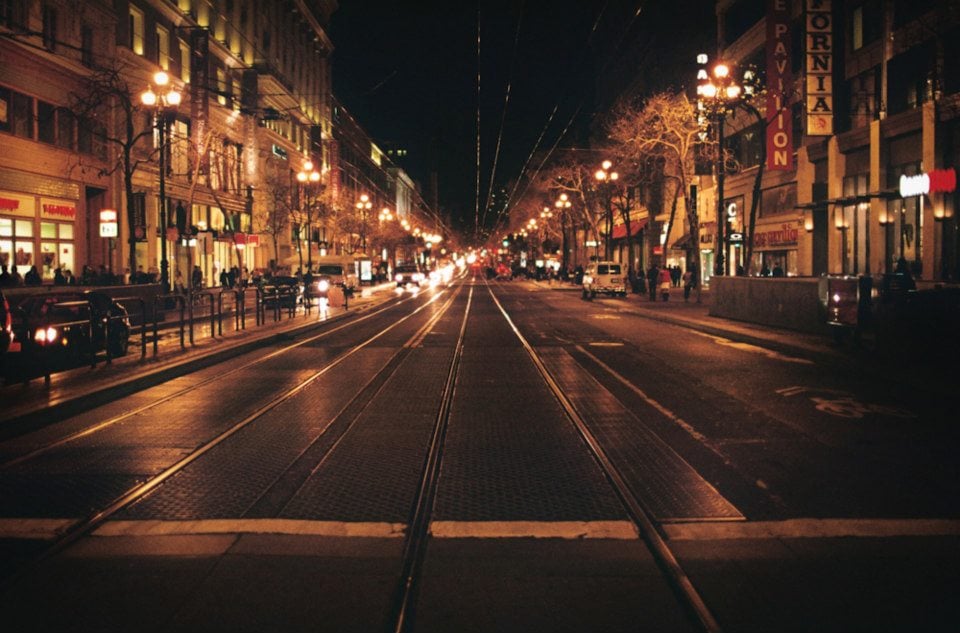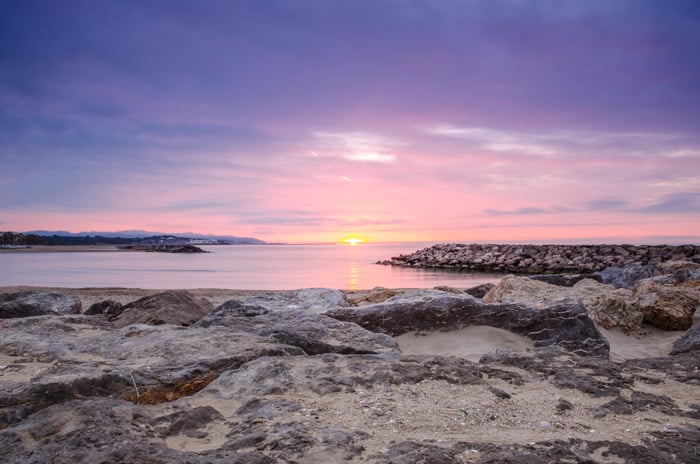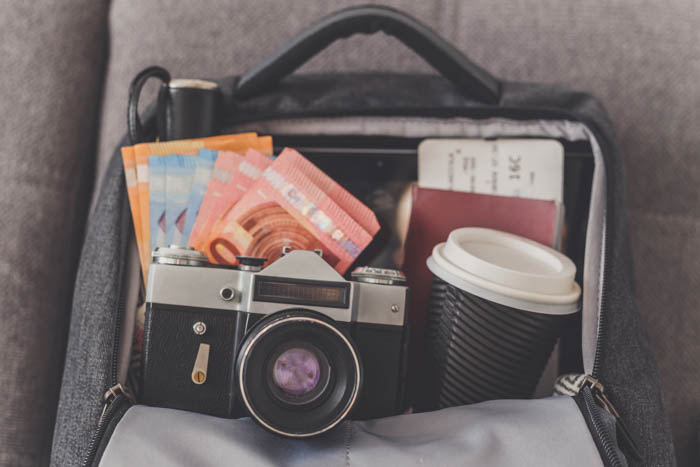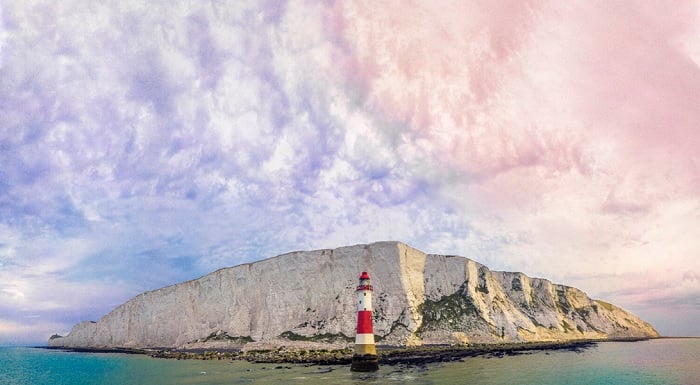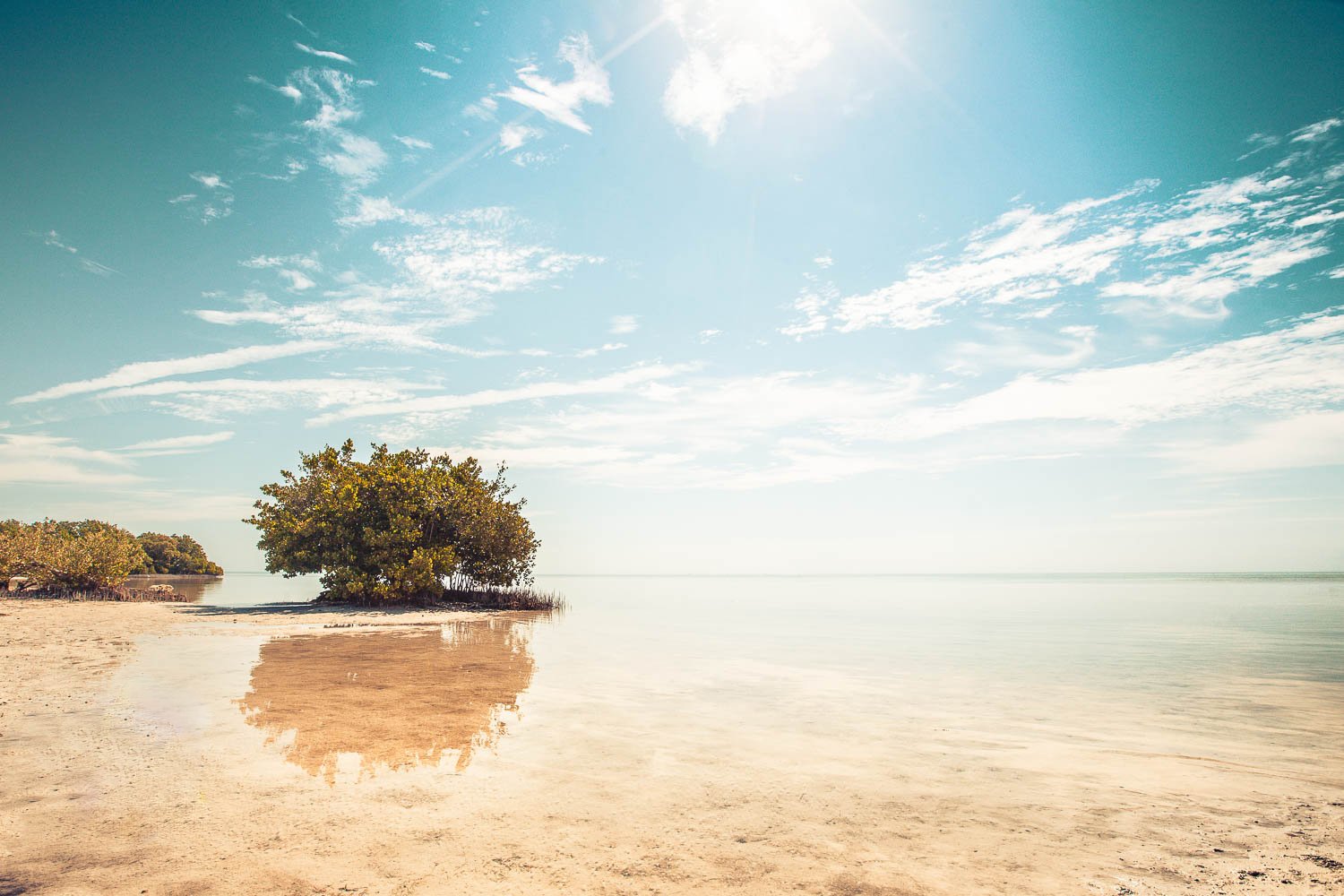It’s hard to take unique photos of famous places that have been shot a million times.
But with these nine tips you’ll soon have more creative images than you ever thought possible.
9. Research Unique Photos That Have Already Been Shot
The first part of all great landmark photographs is good research. The great thing these days is that there are lots of different tools and blogs available to help you research a location.
Often the best way to start is to have a look at Google images or stock shot websites to see what already exists. This should help you build up a picture of the locations that are possible around famous monuments.
Once you have an idea of the photography locations, it’s time to check them out on Google maps. Go to street view and see if they look like a good spot for a potential shot location. Print out a map and mark the location on there that you would like to scout out.
You should also spend some time reading articles and blogs to see if there are any insider recommendations for that location. It’s amazing how often you’ll come across a blog from a local resident that highlights somewhere that most people haven’t thought of.
Don’t forget to also check sunrise, sunset times and light direction as well. These will all have a big influence on your final shot location. The key is to do as much research as possible so that you are armed with as much knowledge as possible before you leave.
But remember the purpose of this process isn’t to copy the images already out there but to see if you can capture something different.
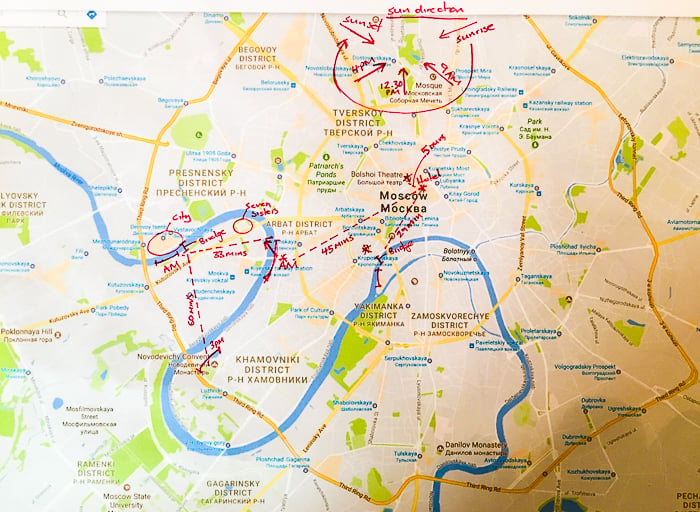
© Kav Dadfar.
8. Pre-Visualise
This is a term that means trying to envision the photo you want to capture in your head before even picking up the camera. The more experience you gain in travel photography the quicker this process will become.
After you have done your research, see if you can picture the type of shot you want to capture. Sketch it out on a piece of paper if you need to. You can then begin to work out how to actually capture it.
For most famous places you could end up with a few different ideas. On location, or with help from Google Maps or Google Earth, you can check which of these ideas are possible and which aren’t.
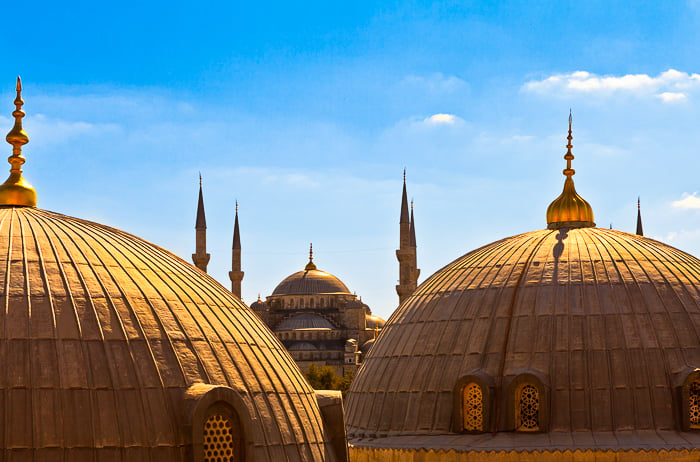
© Kav Dadfar.
7. Scout the Area
Your research and the pre-visualisation process should have given you a few different ideas and locations. Now it’s time to scout them out to ensure that they are right. For example, it could be that there are now building works in the way of your original photography locations.
By scouting the area not only can you check your locations but also see if there are any better ones. You can always also ask the locals if they know of any good places to take pictures from.
By the end of your scouting session, you should have a clear set of locations to shoot from.
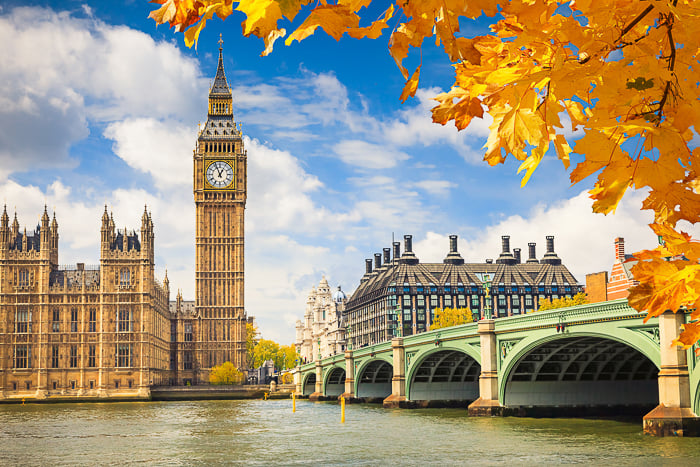
6. Arrive Early to Avoid the Crowds
Most world landmarks will be busy with hoards of tourists during the day. The best time to arrive is usually early in the morning. It’s not uncommon to get the whole place to yourself even in the busiest of sites. Especially if the sunrise is very early in the morning.
The other benefit of arriving early is that you will enjoy a soft golden light (if permit). It’s no secret that most photographers plan their shoots around the golden hour.
Arriving early means you can capture your photos in the best possible light. And also avoid the “postcard look” that comes with taking pictures when the light is harsh.
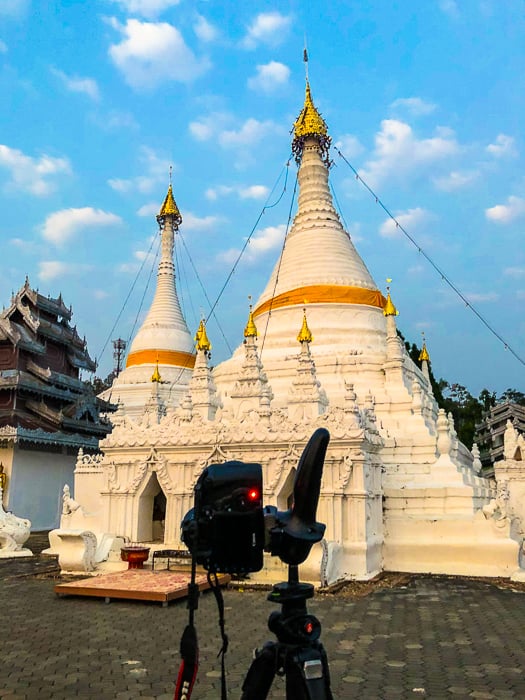
© Kav Dadfar.
5. Get Higher or Lower to Capture that Unique Look
Often one of the biggest challenges when photographing famous places is to be able to do so in a unique way. Even regular tourists will be able to capture famous landscapes or monuments from the viewpoints.
Whilst you should also cover these locations, spend your time trying to work out unique angles or views that people don’t see.
For example, stand on a bench to get an elevated view of a market. Climb to the top of a nearby multi-storey car park that offers a good view of a landmark. Or even look for local rooftop bars. They won’t be difficult to find around famous places.
The other option is to look for different angles in and around your landmark. Put your camera close to the ground and you will create a foreground. This will create a completely different view of the famous place you are photographing.
Or get close and focus on a small part of the landmark. People will still recognise it, but it will often look more interesting than the normal eye-level view.
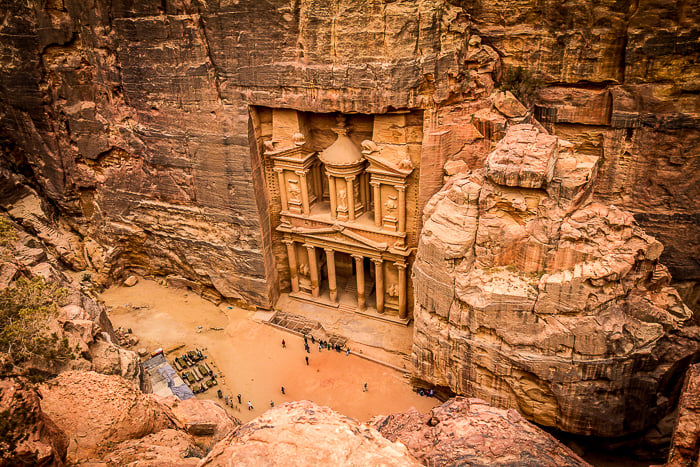
Credit: Dreamstime
4. Practice Unusual Composition to Emphasise the Landmark
Even if you are planning to capture the famous monument at the normal eye-level view, still try to take your time. Think about the composition as a whole and how you want to lead the viewer’s eyes around the image.
Remember that your point of interest doesn’t have to be right in the middle of the photo. In fact, you will usually find that it will be a more pleasing composition if you use the rule of thirds.
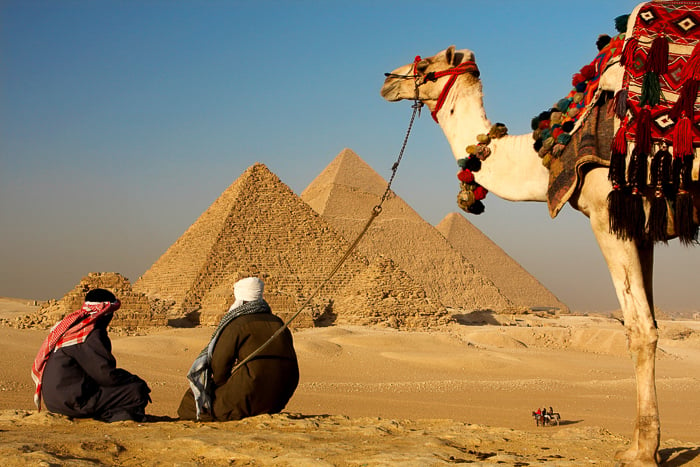
Credit: Dreamstime
3. Add People to Give a Sense of the Atmosphere
The big difficulty in busy tourist sites is the sheer volume of tourists who are there. Trying to capture images without tourists can be difficult. But if you arrive just after opening times at some places, you may get a few precious minutes by yourself.
But often you will have no choice but to accept there will be people in your shot. So try to incorporate them in a way that’s natural. This can help tell a story in your image and also make the photo unique amongst all the other shots of the same place out there.
Keep an eye out for tourists or locals you can include into your composition of famous places.
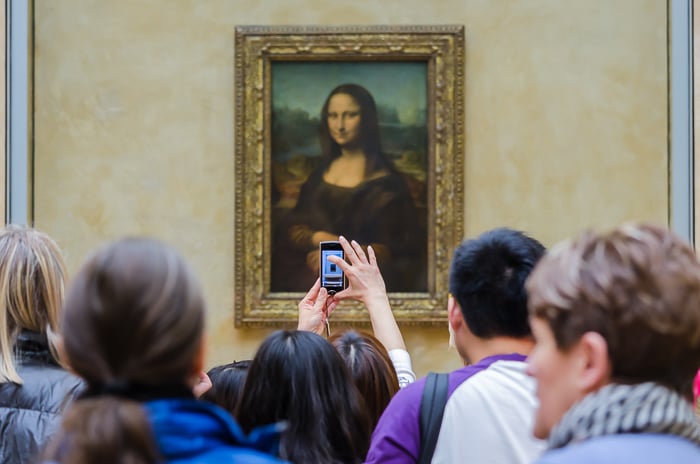
Credit: Dreamstime
2. Try Everything From Light Trails to Time-Lapse
If you have planned your shoot well, have done your research and scouted the location beforehand, you should have plenty of time to play around with different compositions, settings, and even techniques.
For example, use a slow shutter speed and zoom as the photo is being taken. Experiment with light trails and even attempt to capture some time-lapse shots. You never know you might be surprised by the results.
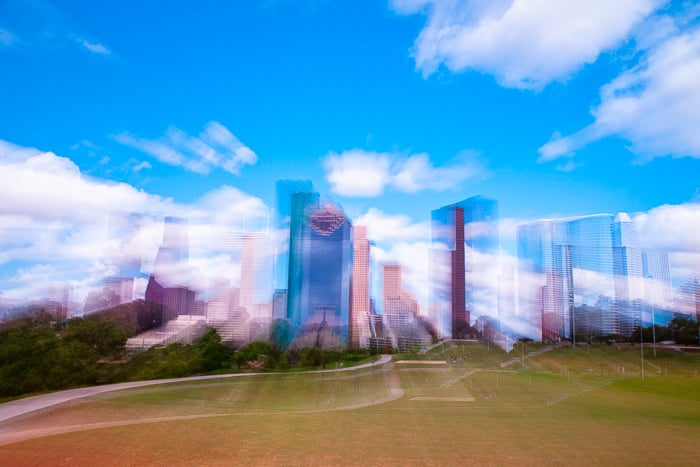
© Kav Dadfar.
1. How to Get Around Photography Restrictions
World landmarks are usually also regulated when it comes to what photography you are allowed to do. Especially if they are indoors, it could be that you are not allowed to use a flash. Or it could be that you are not allowed to use a tripod which will make photographing in low light conditions difficult.
Sometimes the only option might be to raise your ISO which comes at the price of excessive noise in your images.
But if can be creative and think outside the box you may be able to capture the shots you need without having to break any laws.
For example, if tripods are not allowed, can you rest your camera on your camera bag? If it’s too dark and you are not allowed to use a flash can you place your camera on a bench, ledge or even on the floor to be able to have a slower shutter speed?
Often there will be a solution if you think about it enough.
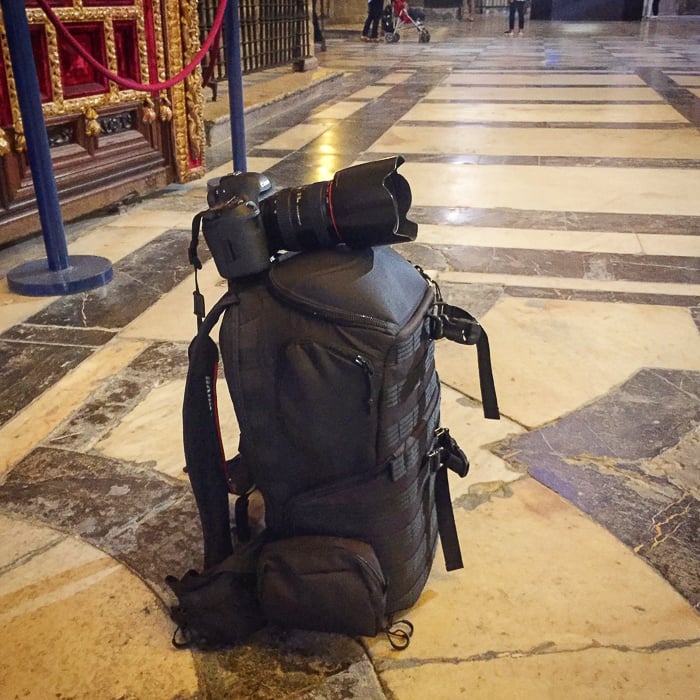
© Kav Dadfar.
Conclusion
Great landmark photographs often don’t happen by accident. It takes a lot of research and planning to set-up the shoot. Then you have to rely on mother nature to provide the right conditions as well.
These variables mean that sometimes you will have disappointments. Remember to be persistent. Yes, the weather might have spoilt last night’s sunset shots, but you should keep going back until you can capture that shot that you wanted to. It will be worth all the effort in the end.
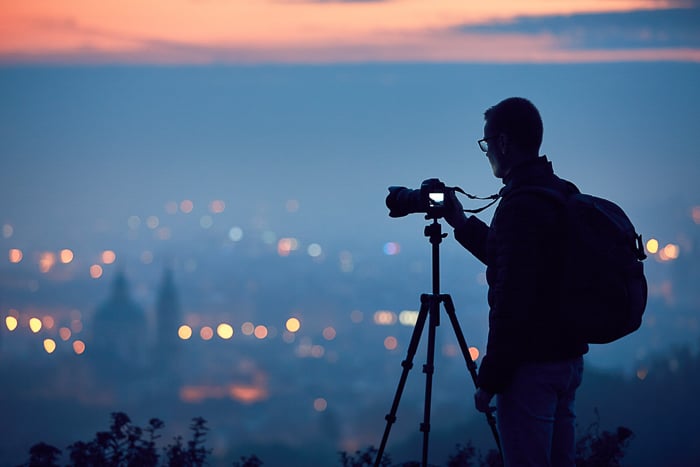
Credit: Dreamstime
Even in this digital age where everyone with a smartphone is a photographer, you can still find new ways to capture the same old famous places. With practice and experience, this will become easier. But for the time being, follow these tips and you will be on your way to capturing unique photos of famous places.
